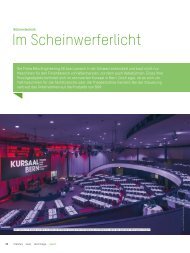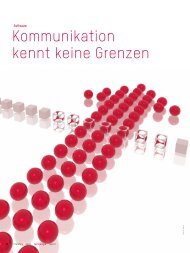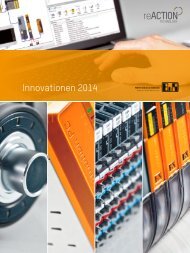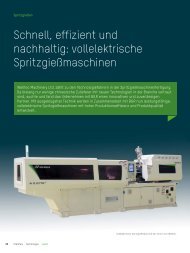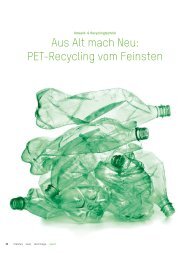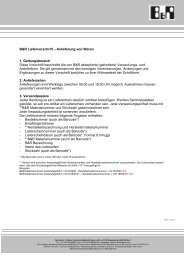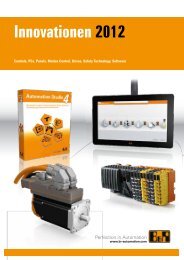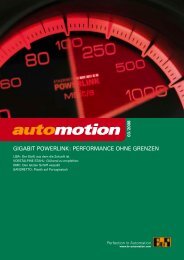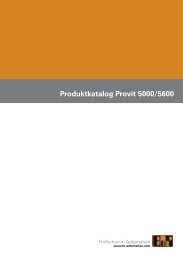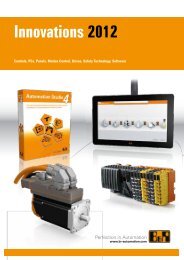automotion automotion automotion automotion - B&R Industrie ...
automotion automotion automotion automotion - B&R Industrie ...
automotion automotion automotion automotion - B&R Industrie ...
Create successful ePaper yourself
Turn your PDF publications into a flip-book with our unique Google optimized e-Paper software.
Application<br />
Straight from the lab to the<br />
plant through simulation<br />
The production of cellulosebased<br />
fibers, as performed by the<br />
world market leader Lenzing AG,<br />
involves a long chain of highly<br />
complex chemical processing<br />
equipment. Between development<br />
of an improved process in<br />
the laboratory and its implementation<br />
as a full-scale system, several<br />
months would traditionally<br />
be needed to test and optimize a<br />
pilot system and its control technology.<br />
Lenzing was able to skip<br />
this intermediate step by simulating<br />
the new system in MATLAB ® /<br />
Simulink ® and running real-time<br />
tests of the control software using<br />
the real B&R APROL process<br />
control system, which also shortened<br />
the commissioning time of<br />
the system from several weeks to<br />
just a few days.<br />
52 <strong>automotion</strong> 07/2009<br />
Increased awareness about global<br />
climate change has increasingly led<br />
environmentally and health conscious<br />
consumers to consider where<br />
their purchased products came<br />
from and what materials went into<br />
making them. Because clothing as<br />
well as non-woven products such<br />
as hygiene products and foodstuffs<br />
are products with direct physical<br />
contact, the clothing industry has<br />
responded by using ecological labeling<br />
and carbon labeling to communicate<br />
information such as a product's<br />
'carbon footprint' or skin friendliness.<br />
the Lenzing group is a global leader<br />
in the marketing and manufacturing<br />
of man-made cellulose-based fibers.<br />
teNCeL®, Lenzing modal® and<br />
Lenzing Viscose® fibers are primarily<br />
used in the textile industry; special<br />
fibers from Lenzing are used in the<br />
area of hygiene as well as for technical<br />
applications. The fibers are then<br />
distributed to companies around<br />
the world for further processing,<br />
whereby Asia represents the largest<br />
market with over 50%. Nearly 6% remain<br />
in Austria, home to the largest<br />
single customer.<br />
The fibers are manufactured in several<br />
steps, beginning with the renewable<br />
resource wood. Approximately<br />
800,000 solid cubic meters of beech<br />
wood are processed annually at the<br />
Lenzing location alone.<br />
New plants optimize production<br />
the wood is converted to natural<br />
fibers in expansive systems, which<br />
operate with a high degree of automation,<br />
the lowest possible environmental<br />
impact and the best possible<br />
utilization and recycling of energy<br />
and residual materials. Optimization<br />
in this area is the main motive behind<br />
the successive modernization



